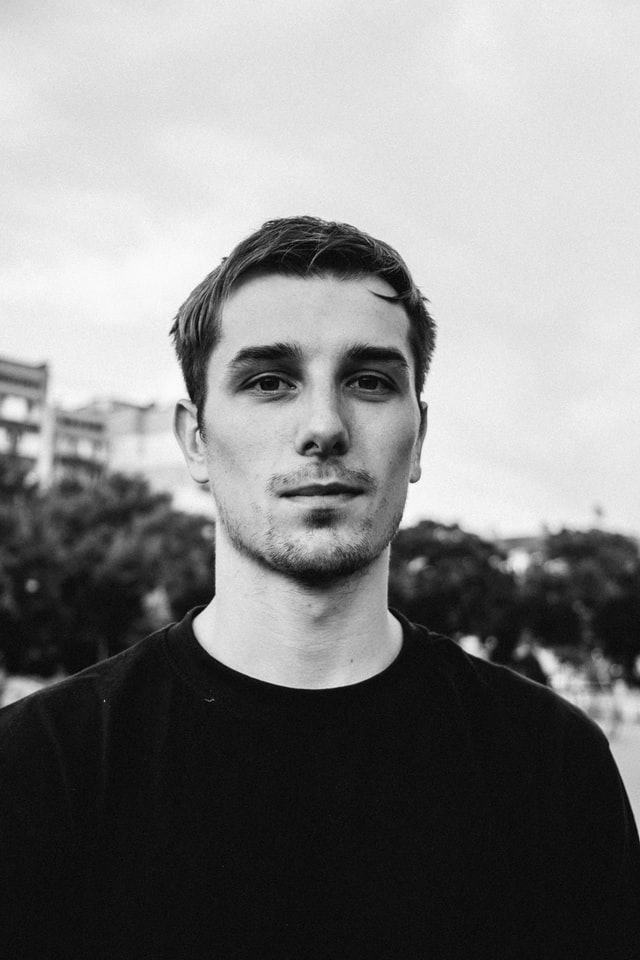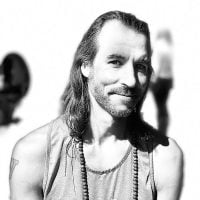
How this Introvert is using Maitri to break out of his Shell.
“F*ck you, extrovert! You have no f*cking idea what it’s like!”
That was my initial (internal) reaction when Waylon Lewis (founder of Elephant Journal) made an offhand comment stating that the exhaustion introverts feel after spending time in crowds stems, in part, from not being our authentic selves.
This happened in a recent Elephant Academy “Maitri: How to Fall in Love with Your Sweet Self” course, during a discussion on self-acceptance.
At first, I was really riled up by this comment, feeling offended, trivialized, and insulted. But as I thought it over, I realized there is some truth in this statement.
I’ve sometimes wondered why I feel so drained after spending time around people. Especially during my recent, intensive Yoga Teacher Training, which involved a month of 9-5 days around people, six days per week. By the end of that training, I was delirious with exhaustion and basically leaking gray matter out of my ears.
I think one reason for the exhaustion is that whenever I’m in a group, my mind is constantly analyzing the social dynamics, attempting to ascertain how I need to act to be accepted by the crowd.
Without consciously realizing it, my guard automatically comes up. The training from high school kicks in and I enter wallflower mode: becoming absolutely quiet and still, trying to draw as little attention to myself as possible until I can determine how to act in a way that won’t bring ridicule down on my head. When it feels safe, I slowly start letting the real me out, as much as I think is socially acceptable.
I learned to do this at a young age because my childhood taught me that being my authentic self, allowing my natural reactions to guide my actions and words, led to ridicule from my peers.
I imagine many readers out there can relate. Our minds have been conditioned to hide ourselves until we know it’s safe to come out. That’s why we usually prefer the company of a small group of friends whom we already know are safe and supportive.
But I’m starting to realize how limiting this preconditioned mindset can be, and I’m wondering if it’s possible to retrain our brains to try a different approach.
I asked myself, “When is the last time someone actually made fun of me—in an intentionally hurtful way—for being weird?”
The last episode I can remember was my freshman year of college, when an uber-jock in my dorm harassed me for being a dork…until he flunked out after one semester. I still remember the last time I saw him. I was leaving the dorm to go to a final; he was coming in, with his dad, to clear out his room. As we passed each other in the hallway, he didn’t look me in the eyes to see my slight smirk. That was a victory.
After that, no one really made fun of me like that anymore, because things were different in college. That asshat was stuck in high school, and he was weeded out.
In my experience, things are also different as an adult—I haven’t encountered many people who are as recklessly cruel as children can be. Yet still my instinctive ingrained reaction around any new group is to hide and observe.
As I recognize this automatic response of mine, I’m noticing how suffocating it is to constantly hide and live in fear of not feeling accepted.
I’ve written a little of recent experiences where I’ve felt free to be myself, and how liberating that feels. I’m wondering how I can more easily be myself around other people, especially people I don’t know well.
One tool we can utilize to retrain our minds away from this instinctive, repressive response is maitri—fully accepting ourselves. When we are completely at peace with ourselves, when we feel our loving connection to life, the universe, God (whatever label we prefer), when our connection to our own heart is unyieldingly secure, then the opinions of others aren’t so important.
To quote Sharon Salzberg, from her book Lovingkindness: The Revolutionary Art of Happiness, “If we were in touch with our own loveliness, if we felt less fearful of others, if we trusted our ability to love, we would have mental happiness.”
Taking this a step further, if, instead of hiding, we set the tone of any new interaction by fully accepting the other person, maybe we can create an atmosphere where everyone feels safe to be themselves.
A couple more quotes from Lovingkindness come to mind:
“If we extend the force of love, love returns to us…By being a beacon of trustworthiness in this world, we become a safe haven for others and a good friend.”
“Looking at people and communicating that they can be loved, and that they can love in return, is giving them a tremendous gift. It is also a gift to ourselves. We see that we are one with the fabric of life.”
Now that I’ve stared into the depths of my own loneliness and found peace, felt my connection to the fabric of life through my own heart, perhaps now I can feel secure enough to be myself and accept others in new social situations.
Maybe I can start to establish a new default mode of interaction with people based on my unconditional acceptance of who they are. Even, perhaps, accepting their unacceptance, or misunderstanding of me.
Anytime someone judges us, anytime sometime ridicules us to make themselves feel better, they’re acting out of their own suffering.
Maybe approaching all people with love and acceptance can remove that need of theirs to lash out?
I think I’ll give it a try and see what happens.
~










Read 27 comments and reply